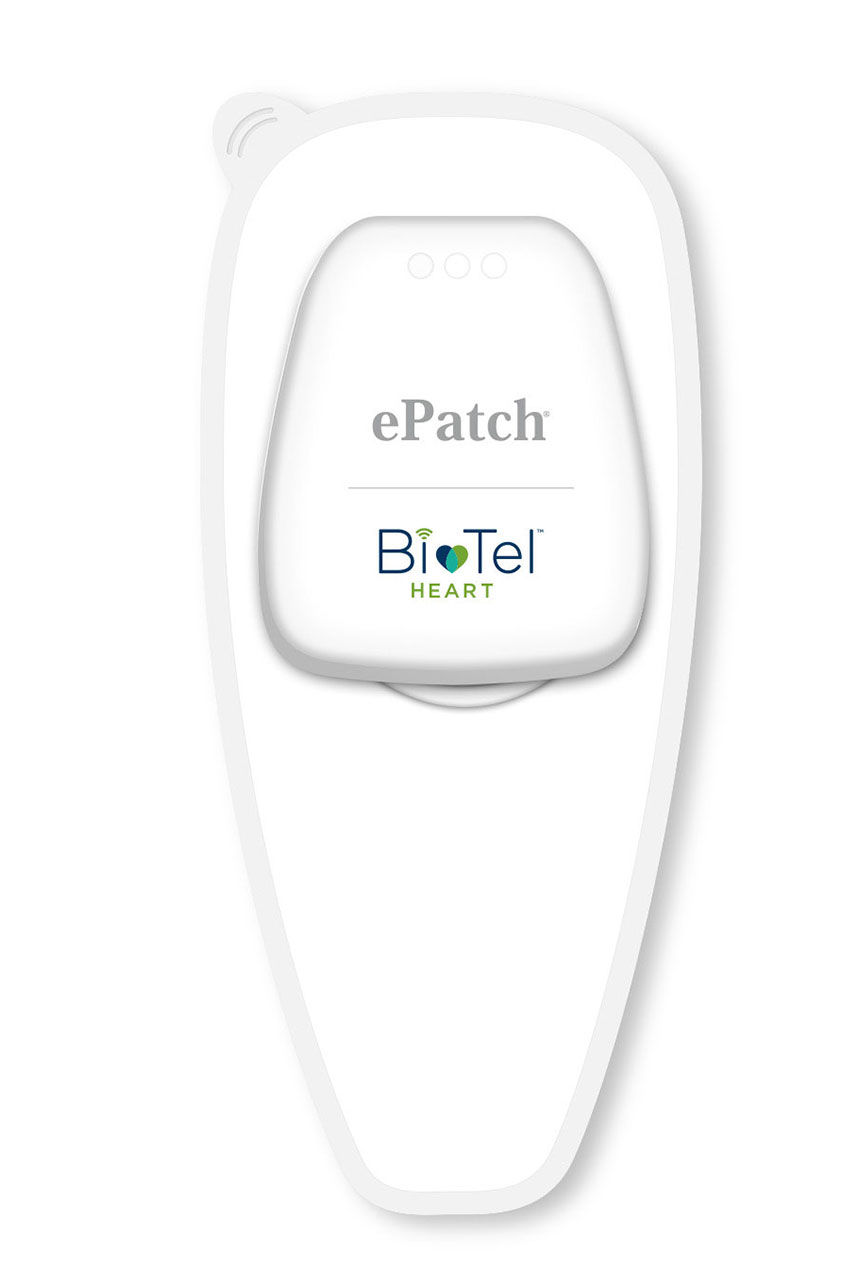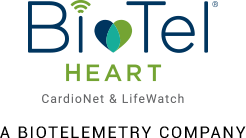

“The diagnostic tools clinicians use to monitor this group of patients play an important role in finding the cause of the stroke and developing a personalized treatment plan,” Andy Broadway, General Manager of Ambulatory Monitoring and Diagnostics at Philips told the press.
#BIOTEL HEART MONITY PATCH#
Overall cost-of-care savings using the MCOT patch and ILR for undiagnosed AFib patients topped $4 million. The study also showed initial MCOT monitoring achieved almost eight times lower costs, reducing total cost per patient by $189,909 compared to only monitoring with ILR. Biotel Heart Monitor RashBioTelemetrys remote monitoring services and clinical research capabilities expand the Philips patient care management offerings.

It also helped reduce secondary stroke risk from new anticoagulant use in patients with MCOT patch detected AFib. The study showed 30-day continuous monitoring with Philips’ BioTel Heart MCOT patch followed by an implantable loop recorder (ILR) improved atrial fibrillation (AFib) detection rate, spotting 4.6 times more patients with AFib than ILR alone. Delivering continuous care with improved outcomes Proprietary MCOT algorithm Unsurpassed arrhythmia detection and diagnostic accuracy Two channels of ECG. The MCOT monitor gathers data from the sensor via Bluetooth, then sends that ECG data via a wireless connection automatically.
#BIOTEL HEART MONITY ZIP#
First Name Last Name Company Zip Phone Email Speciality How Can We Assist You Comments. Read on below for a recap of the reimbursement saga that CardioNet has battled these past few years.Philips released new research evaluating mobile cardiac outpatient telemetry (MCOT) for first-line diagnostic ambulatory monitoring of 1,000 post-cryptogenic stroke patients for a year. A Holter monitor is a wearable device and type of ambulatory electrocardiogram that records your heart’s rhythm and rate activity. other cardiac monitoring solutions at BioTel Heart. "Now physician reimbursement needs to be dramatically improved to reflect the increased work load involved in caring for MCOT patients."Īs Sweeney implies, better reimbursement for the service component of these wireless remote patient monitoring services will help drive adoption.
#BIOTEL HEART MONITY CODE#
"It is good news that the CPT code is finally resolved," CardioNet founder and former president and CEO James Sweeney (current CEO of PatientSafe Solutions) told MobiHealthNews in an email. Of course, this new national rate is only for the technical component of MCOT solutions.

(Highmark is a CMS contractor for Delaware, New Jersey, Pennsylvania, Maryland and the Washington DC area.) The national rate of $800 announced by CMS this week is welcome news but it still does not come close to restoring the original reimbursement rate. LifeWatch, eCardio, Corventis) from more than $1,100 to $754. "We believe that this sends a clear message that MCOT is an established, accepted technology that is critical to providing better patient care to Medicare beneficiaries nationwide."ĬardioNet's prospects stumbled a bit last year when Highmark announced that it would reduce its reimbursement rate for CardioNet and other MCOT solution providers (i.e. "We are pleased that our ongoing dialogue with CMS over the last two years culminated in a national price," Joseph Capper, president and CEO of CardioNet stated in a company press release. The new price will replace the current carrier price of $754, which CMS contractor Highmark Medicare Services established last year. CardioNet said that the rate is approximately $800 and is expected to become effective on the first of the year. Big news for anyone concerned about reimbursement issues for wireless health: CardioNet, which leverages wireless technology to diagnose and monitor cardiac arrhythmias, announced this week that the Centers for Medicare and Medicaid Services (CMS) has established a national rate for the technical component of mobile cardiovascular telemetry (MCOT).


 0 kommentar(er)
0 kommentar(er)
